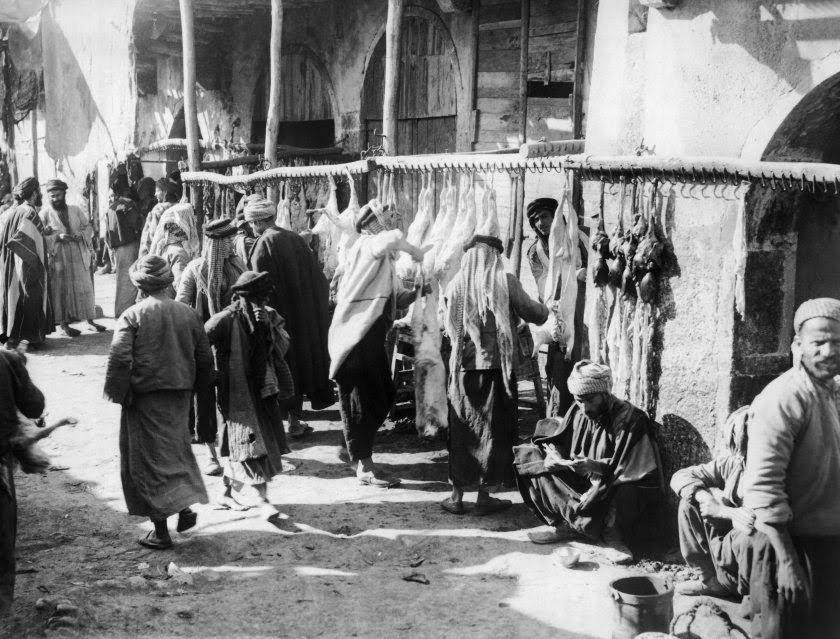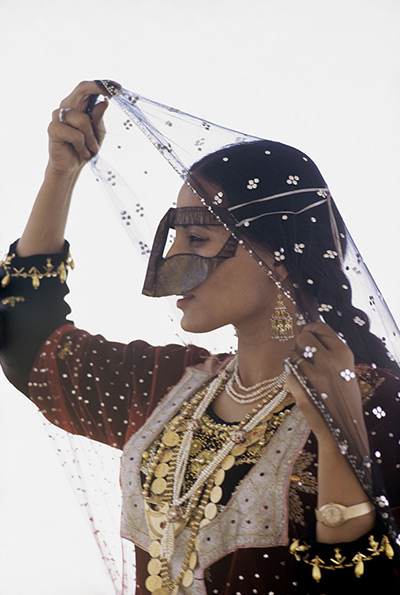An Omani variant of Cinderella-type tales that neatly answers the question of how to solve the impossible task: get a jinni to do it.
*Where we would say step-mother in English, Arabic says either father's wife or sometimes paternal aunt.
***
It is said that there
was a man who had two daughters: Mowza from his deceased wife and Zuweyna from
his current wife. The father’s wife
treated Mowza like a servant, making her sweep the house and clean the furniture
and bring water and wood and cook and wash the dishes and clothes, all while
she and her daughter were chatting or have neighbours and close relatives over
as guests, or going to visit them. One
day the father’s wife gave Mowza an order, saying:
-Today you must go and
bring wood that is not from the sun and not from the shade, not crooked and not
straight, not green and not dry, not too much and not too little, and not too
short and not too long.
So the girl went with
her friends to bring wood.
While her friends were
gathering wood, Mowza was sitting on a rock thinking about where she would find
wood with the conditions that her father’s wife had set. Her friends finished gathering their wood and
left her alone, confused and thinking. When
the place was empty a male jinni came to her and asked:
-Why are you sitting
alone hanging your head in this deserted place?
-Because my father’s
wife wants me to bring her wood that is not from the sun and not from the
shade, not crooked and not straight, not green and not dry, not too much and
not too little, and not too short and not too long.
-I will bring it to
you on one condition.
-…
-That you marry me.
-And you will take me
away from the bitterness of life with my father’s wife, but how?
-I will turn into a
ghul (here, a snake), and enter the bundle of wood, and when you put it down by
the door I will exit it and enter your private room and you will ask to marry
me.
It did not take long
for him to bring her the wood, and she carried it and returned with it to the
village. When her friends saw it they
were amazed at its shape because it was different from any wood previously and
from any they had brought.
Woman carrying a bundle of wood, Adis Ababa (wiki)
|
When she arrived at
the house, she threw the wood down from on top of her head to the ground, and
the ghul slipped out and crawled into her room, and then she asked her father’s
sister [her father’s wife] if she could marry the ghul, without telling her
that he was a male jinni. When her
father heard the request he refused to marry his daughter to a ghul, but his
wife insisted on accepting, so as to be rid of the girl.
And in this way
Mowza’s marriage to the ghul was celebrated in her room…and when they closed
the door on her they heard Mowza scream, because the jinni was piercing her
ears in order to put in each one a gold ring.
When her father’s wife
heard the scream she called to the ghul, saying: sawwigh wa zeed (sawwigh has
two meanings in Omani dialect: either to make gold jewellery, and so meaning to
give her more gold, or to bite, as in a snake or insect bite. Zeed means to increase). And every time Mowza screamed, her father’s
sister screamed in turn at the ghul, saying: sawwigh wa zeed.
An Austrian silver Maria Theresa thaler dating from c.1880–
|
Then Mowza screamed:
my throat, my throat, while the jinni was putting jewels around her neck, and
her father’s sister supposed that he was wrapping around her neck to strangle
her and she encouraged him from outside the room, yelling: sawwigh wa zeed.
When it was morning,
Mowza left her room weighed down with gold which the jinni had showered her
with. Her father’s wife was astonished
and filled with spite and jealousy, and she decided to search for another ghul
for her daughter Zuweyna among the cracks and filth, until she found a viper
and it was larger than the ghul which her husband’s daughter had married. So she brought it and took it into her
daughter’s room and they had their wedding celebration.
Chinese sharp-nosed viper (source)
|
When they closed the
door upon the snake and her daughter, Zuweyna screamed once. Her mother yelled with joy: sawwigh wa
zeed. But no other sound emerged.
The mother waited
until the morning for her daughter to come out of the room weighed down with
gold, but her wait became long without anyone coming out. When she got very worried she knocked on the
door three times, and when no one answered she pushed the door hard to see the
snake slither crawling across the earth, and he slipped hidden out of the room
and left the house to return to the cracks and the filth. As for Zuweyna, she was dead and unmoving.


.jpg)






